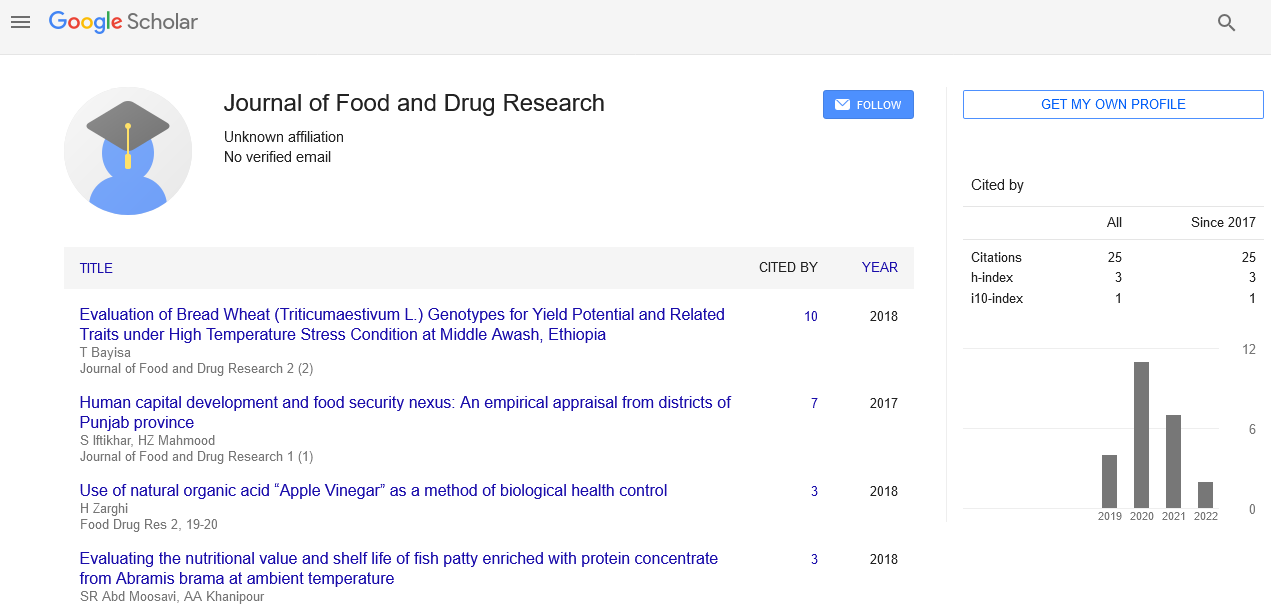
Sign up for email alert when new content gets added: Sign up
Abstract
Environmental noise's effect on food reward
Author(s): Zadic James*Food rewards include both wanting and liking, yet these emotions are expressed in very different brain substrates. While like is linked to consummatory and hedonistic experiences, desire indicates anticipatory and motivating activities. Additionally, behavioural paradigms have quantitatively segregated these various constructs. Indeed, how much food is appreciated depends on internal, physiological, and interoceptive factors. However, it is still unknown how these appetitive and rewarding reactions to food may be influenced by contextual sensory cues. We used an online version of the Leeds Emotional Response Scale to investigate the effects of environmental soundscapes on explicit liking, explicit wanting, implicit wanting, choice frequency, and reaction time of healthy/unhealthy food in light of the growing empirical focus on sound in food research. dietary preference survey. To elicit emotional relaxation and arousal, loud restaurant noises and soft natural noises were used, respectively. One time with each soundscape playing in the background, 101 healthy university students performed a repeated-measure design of the LFPQ. Although the post hoc analyses failed to approach significance, generalised linear mixed model analyses found a significant interaction effect between soundscape and meal type on choice frequency. There are no known interactions between soundscape and meal type that affect craving or liking. However, hypothesis-driven studies indicated no influence of soundscape on any desiring measures (explicit or implicit), although nature sounds boosted explicit liking of healthy (vs. harmful) foods. Finally, exploratory analysis showed that noise from restaurants generated faster response times for both healthy and unhealthy items (as opposed to noise from outdoors). The study serves as an example of how contextual audio manipulation of certain food reward measures and decision processes is possible in an online setting.
Full-Text | PDF





